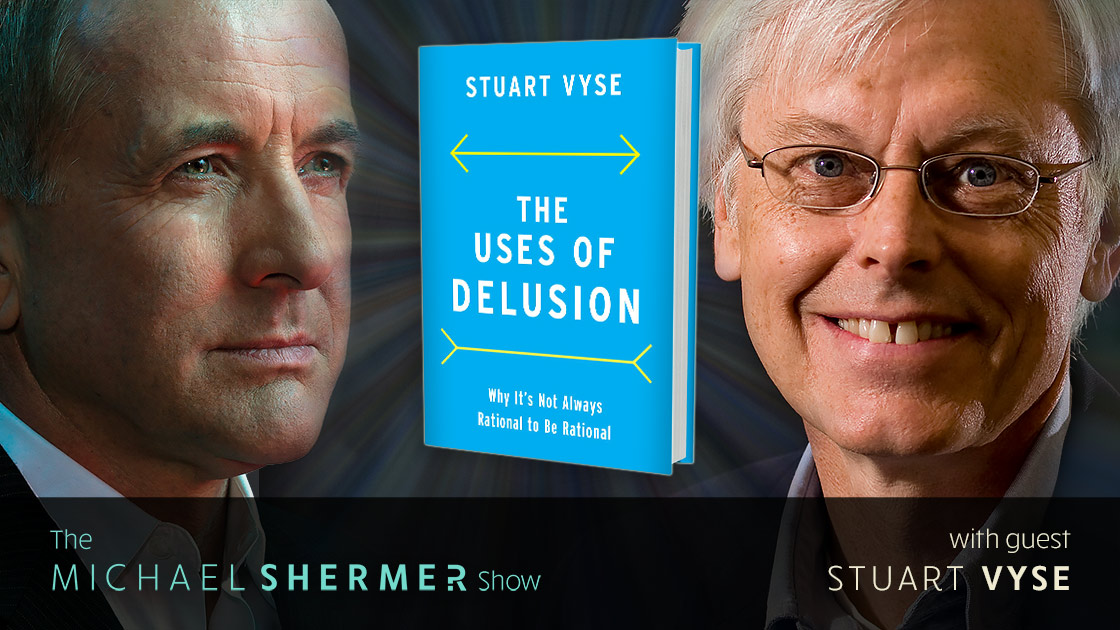conformity

Michael Shermer speaks with psychologist and behavioral scientist, Stuart Vyse, about aspects of human nature that are not altogether rational but, nonetheless, help us achieve our social and personal goals. In his book, and in this conversation, Vyse presents an accessible exploration of the psychological concepts behind useful delusions, fleshing out how delusional thinking may play a role in love and relationships, illness and loss, and personality and behavior.

Shermer and Theroux discuss: how documentary films are made • religious fanaticism • UFO cults • Scientology • neo-Nazis • anti-Semitism • prisons, pornography, and prostitution • Jeffrey Epstein and Jimmy Savile • self-help movements and gurus • deception and self-deception • social proof and human conformity • are humans naturally rational, irrational, or both?
Michael Shermer Speaks With Louis Theroux About Neo-Nazis, Jimmy Savile, UFO Cults, and Scientology. PLUS: In SRC Report PCIS-006, we take a look at Conspiracy Theory Endorsement by Media Viewership.

WEIRD: Western, Educated, Industrialized, Rich, and Democratic. Unlike much of the world today, and most people who have ever lived, WEIRD people are highly individualistic, self-obsessed, control-oriented, nonconformist, and analytical. How did WEIRD populations become so psychologically distinct? What role did these psychological differences play in the industrial revolution and the global expansion of Europe during the last few centuries?
In Science Salon podcast # 134, Michael Shermer speaks Joseph Henrich about his book: The WEIRDest People in the World: How the West Became Psychologically Peculiar and Particularly Prosperous.

In his lecture on Pathways to Evil (Part 2), Dr. Michael Shermer fleshes out the themes of Part 1 by exploring how the dials controlling our inner demons and better angels can be dialed up or down depending on circumstances and conditions. Are we all good apples but occasionally bad barrels turn good apples rotten, or do we all harbor the capacity to turn bad?
In his lecture on Pathways to Evil (Part 2), Dr. Michael Shermer fleshes out the themes of Part 1 by exploring how the dials controlling our inner demons and better angels can be dialed up or down depending on circumstances and conditions. Are we all good apples but occasionally bad barrels turn good apples rotten, or do we all harbor the capacity to turn bad?












